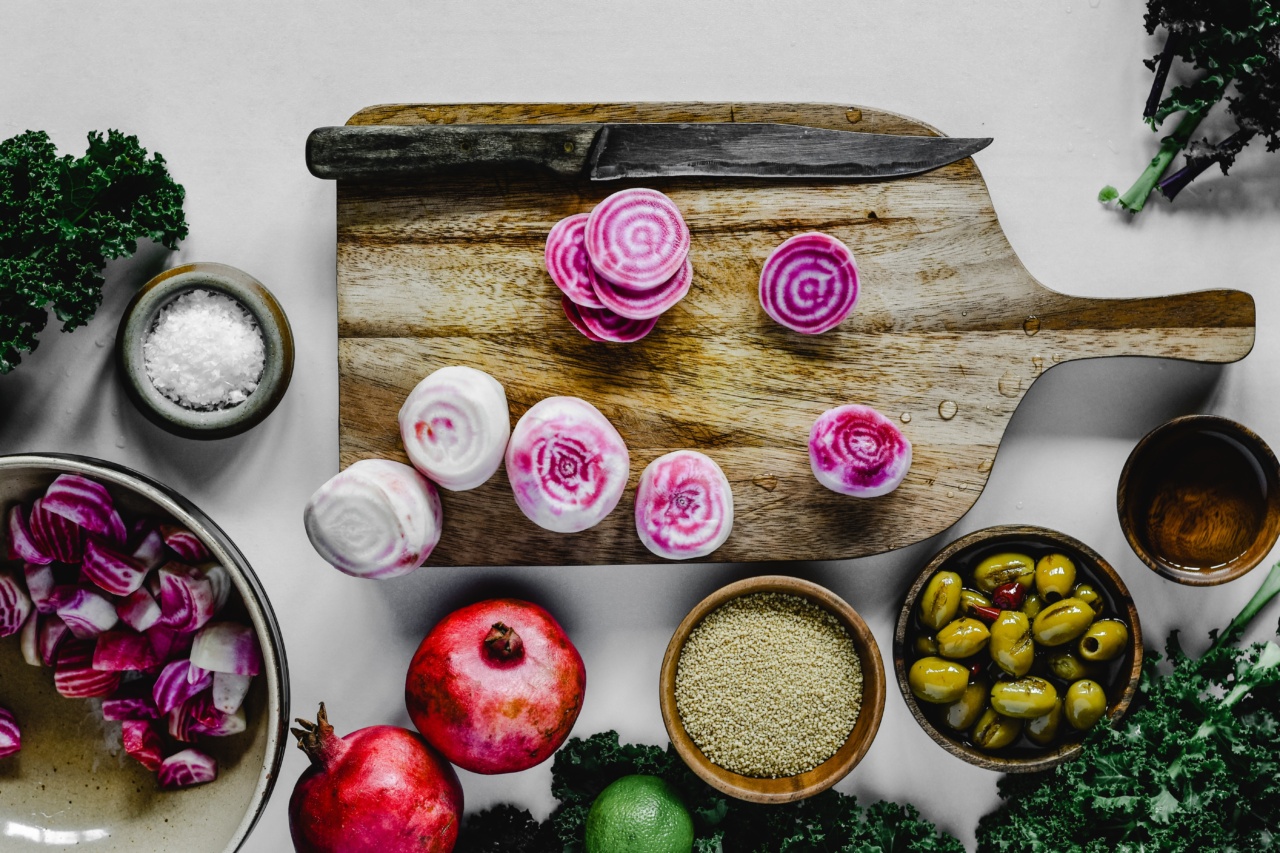Excessive salt consumption can have detrimental effects on your health, including the risk of high blood pressure, heart disease, and stroke.
The American Heart Association guidelines recommend limiting sodium intake to less than 2,300 milligrams per day, with an ideal limit of 1,500 milligrams for most adults. However, reducing salt in your diet doesn’t mean compromising on taste. There are several flavorful foods that can help you cut back on salt while still enjoying delicious meals. Let’s explore some of these options:.
1. Herbs and Spices
Herbs and spices are excellent substitutes for salt when it comes to adding flavor to your dishes. They can be used in various forms, including fresh, dried, or even as powders.
Consider seasoning your meals with basil, oregano, rosemary, thyme, and other herbs to enhance the taste without relying heavily on salt.
2. Citrus Fruits
Citrus fruits such as lemons, limes, and oranges bring a vibrant and tangy flavor to your dishes. Squeeze fresh lemon or lime juice over grilled vegetables, salads, or fish to enhance the taste.
The natural acidity of citrus fruits adds a zing to your meal without the need for excessive salt.
3. Vinegar
Vinegar, especially balsamic vinegar, can instantly elevate the taste of your meals. It pairs well with a variety of dishes, including salads, roasted vegetables, and meat.
Opt for high-quality vinegars and use them as dressings or marinades for a salt-free flavor enhancement.
4. Garlic and Onion
Garlic and onion are potent yet healthy flavor enhancers that can help reduce your reliance on salt. These aromatic ingredients can be added to almost any savory dish, be it soups, stir-fries, or casseroles.
They add depth and complexity, making your food more satisfying.
5. Low-Sodium Soy Sauce
Soy sauce is a staple in various cuisines but can be high in sodium. Fortunately, you can find low-sodium soy sauce options that offer the same umami flavor without excessive salt content.
Use it sparingly to season stir-fries, marinades, or Asian-inspired dishes.
6. Fresh and Dried Herbs
Instead of relying on pre-packaged seasoning mixes or ready-made sauces that often contain high levels of sodium, opt for fresh or dried herbs.
Parsley, cilantro, dill, and chives are great options to enhance the taste of your meals without reaching for the salt shaker.
7. Unsalted Nuts
Nuts are a versatile and healthy snack option, and opting for unsalted versions can help reduce your salt intake. Almonds, walnuts, cashews, and pistachios are packed with nutrients and provide a satisfying crunch.
Include them in your trail mix, or sprinkle them over salads and oatmeal.
8. Fresh Vegetables
Vegetables, especially when fresh, add a burst of flavor to any dish. Experiment with a variety of veggies like bell peppers, tomatoes, zucchini, and eggplant to enhance the taste of your meals without relying on salt.
Roasting or grilling them can intensify their flavors further.
9. Homemade Stocks and Broths
Store-bought stocks and broths often contain a significant amount of added salt. By making your own stocks and broths at home, you have control over the ingredients and can limit the salt content.
Utilize flavorful vegetables, herbs, and lean proteins to create a rich base for soups, stews, and sauces.
10. Fresh Fruits
Fresh fruits not only provide natural sweetness but also complement savory and spicy dishes exceptionally well. Pineapple, mango, berries, and apricots can add a pleasant contrast of flavors when used in salsa, salads, or even as a glaze for meats.
Let the natural sweetness of fruits shine through while cutting back on salt.



























